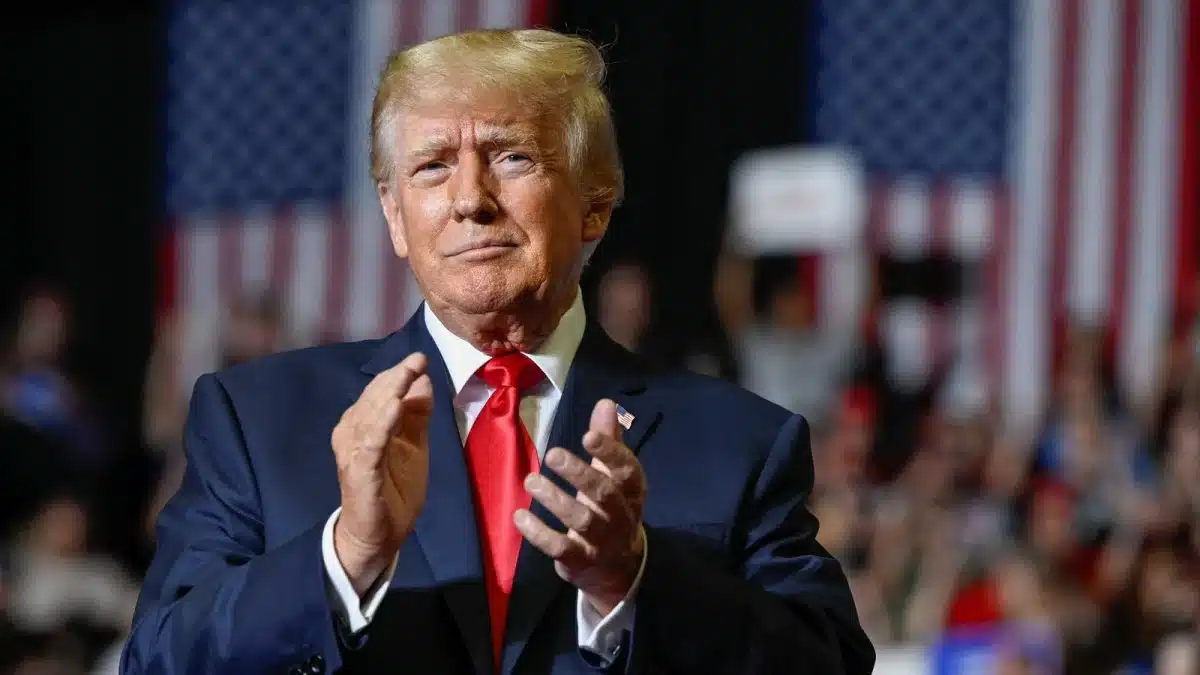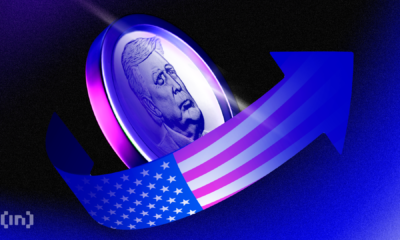Regulation
Trump Deepfake Scams Spread After Verdict, Coinbase Warns

Amid growing concerns about digital security, Coinbase has warned about the increasing prevalence of deepfake scams in the cryptocurrency industry.
This alert arises in the back drop of the increased use of fake AI images and videos in circulating fake news and information on the social media platforms especially after the recent conviction of the former President of United States, Donald Trump.
Trump Deepfakes Spread Post-Conviction
In the wake of the verdict in the case where Donald Trump was convicted of the crime of falsification of business records, followers of the former president unleashed a wave of AI-generated images where Trump was depicted as a victim of a conspiracy.
Several recognizable profiles on X, previously, known as Twitter, promoted these deepfakes right after the New York jury reached its verdict. This strategy highlights one that has been widely applied, especially in the use of deepfakes with the aim of influencing perception and disseminating fake news.
This was confirmed by Coinbase’s Chief Information Security Officer (CISO), Jeff Lunglhofer, who noted increasing complexity and frequency of deepfakes. He noted that the platforms like YouTube are the most affected by the scams because the content posted does not look like a violation of the rules of users’ conduct and does not set off alarm security system, which can identify the generally recognized violations such as nudity or terrorism.
Deepfake Scams Target Crypto Executives
Lunglhofer expressed his concerns at the Consensus conference while stressing that the new development in AI technology, deepfake, is certain to harm the crypto industry. This has been underscored by videos mimicking the real life images of crypto CEOs such as Coinbase’s Brian Armstrong or Ripple’s Brad Garlinghouse that have been used in advertising fake token giveaways.
These deepfakes can look very realistic and therefore, it becomes hard to differentiate between illegitimate and genuine content.
Current deepfake technology is becoming more sophisticated and this means that more and convincing scams can be expected and may be difficult to detect. Lunglhofer pointed out that alertness alone is insufficient to deal with these dangers, and suggested implementing further safeguards for the security of the assets and transactions.
Enhancing Security in Crypto Transactions
Since the crypto industry involves significant risks in its transactions and services, Lunglhofer calls for stricter security measures. He advises on employing facilities like the vault and multi-sig signing protocol that brings in a cooling off period before one can transact large value money.
This extra layer of protection could assist to reduce erratic behaviour that results in significant losses of funds.
In small and routine purchases, Lunglhofer affirms the use of passkeys where they produce a security token for a given user device which cannot be copied or switched. This method is more secure than the simple SMS based authentication which he says is so simple to hack into and was never designed to provide security in the first place.
Read Also: Mt Gox $10B Bitcoin Distribution Won’t Affect BTC Price: Details
The presented content may include the personal opinion of the author and is subject to market condition. Do your market research before investing in cryptocurrencies. The author or the publication does not hold any responsibility for your personal financial loss.













✓ Share: